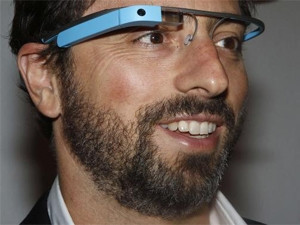
The Google Glass experiment may have been discontinued for now, but a patent awarded to Google this week shows the tech giant may have plans to bring it back with added 'sci-fi' features.
Google has officially patented the method and apparatus for enabling a searchable history of real-world user experiences.
This means Google wants to allow users to record their daily lives in first-person view through the use of a wearable. Its software will then recognise what is in the recoding, tag it and upload to cloud for the user to access at a later stage.
Search, storage and price?
Google has been using recognition and search software similar to described with the recent release of Google Photos - a standalone product that allows users to easily search through every photo they have ever taken and store them all in one place, accessible across all devices.
Once photos are stored on the Google Photos app, users are able to search things like 'dog' or 'beer bottle' and every picture they have ever taken of a dog or beer bottle will appear in the results. This technology could be applied to the videos recorded by a wearable.
The app allows users to store an unlimited amount of high-quality photos and videos for free. This shows that storage of vast amounts of peoples' 'real-life experiences' may not be a problem for Google.
It is unclear how the newly-patented service will work, if the video will have a certain shelf life or if people will have to pay to use it.
Privacy concerns
If this technology becomes a reality and is widely adopted, it could essentially become the "black box" of our lives, says tech analyst and blogger, Liron Segev.
"Some will love it, others will hate it and most at first will find it an invasion of privacy. Google Glass got a bad rap because people took issue with the fact that they could not tell if they were being recorded."
However, he notes "you can't walk anywhere in the US or Europe, or even some South African cities, where you are not being recorded by CCTV systems.
"The technology is not that far-fetched; we have the ability to do it already," says Segev.
Patents prevent innovation
Segev says he is horrified and surprised that the patent was awarded to Google as there are a number of companies doing similar things already, such as GoPro and live-broadcasting apps like Periscope.
"The Internet of things is all about connecting devices and storing information in a cloud. The only thing that is unique to the patent and not already in the public domain is the recoding, recognising, tagging and storing element," says Segev.
However, he says it does block other start-ups from using the idea and therefore prevents innovation in the field.
Segev described patents as a 'big stick' that allows companies to chase away others who try to infringe on their idea.
"Patents are worrisome as the only people who make money are the lawyers involved."
It is not clear yet what Google will do with this patent, but the company has "enough gold" (and now a big stick) to take anybody to court, says Segev.
Share